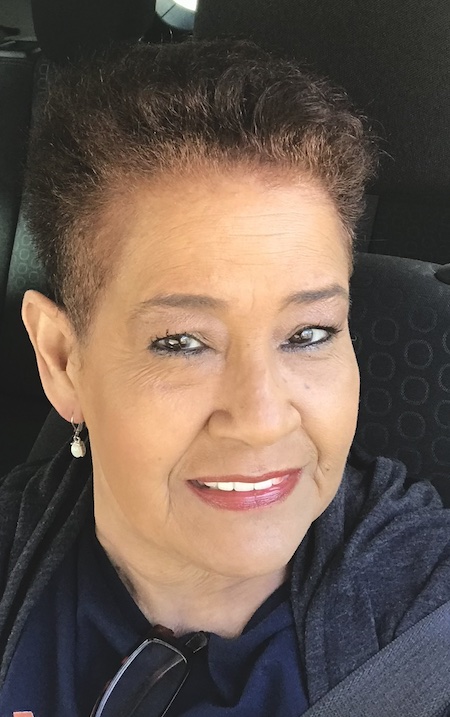Like a lot of high school teenagers, Lourdes J. swiped her mom’s cigarettes because it looked cool to smoke. But after 30 years of smoking as much as two and a half packs a day of Marlboro regulars, she struggled to breathe, even occasionally blacking out from lack of oxygen.
Experiencing issues caused by smoking

Lourdes, now 69, an office coordinator in the Cancer Transplant Institute at HonorHealth Scottsdale Shea Medical Center, was chronically sick during the years she smoked.
“I had a horrible time breathing, including shortness of breath, almost to the point of passing out,” she says. “I suffered a lot from always being sick. Almost every year, I would get bronchitis, which would turn into pneumonia.”
In addition, Lourdes was diagnosed in 2006 with valley fever, and after that, things just got worse. In 2009, she was diagnosed with chronic obstructive pulmonary disease (COPD), asthma and emphysema. Still, it took another year for Lourdes to finally quit smoking.
She had tried to quit before but had failed. Lourdes had cut down on her smoking after being denied entry into a maternity ward to see a newborn grandchild and because of ever-more-restrictive workplace rules against the habit. She finally used a medicated patch to discourage smoking and was able to quit within four days.
But the damage was done. Just walking from home to her car to work was a struggle. “It was really sad,” Lourdes explains. “I couldn’t participate in many activities. I had to use oxygen at night, and sometimes during the day. It just got worse. My quality of life just was really bad.”
For 12 years, Lourdes used three different inhalers to get by, but it was just treating the symptoms, not the cause. “I was still getting COPD flare-ups, except they were getting worse,” she shares. “It felt like I was suffocating. You can’t breathe. It doesn’t matter what you do; you can’t breathe.”
It wasn’t until after she suffered a horrible fall in November 2022 that she finally reached out to the HonorHealth Research Institute for help.
Due to a lack of oxygen, Lourdes had fallen three times after over-exerting herself on stairs. The final time, she had just climbed up to her second-story apartment, opened the door, blacked out, fell against the corner of a wall and then face-first into her home entertainment system. She suffered two fractured ribs and multiple contusions. “I wasn’t recognizable for a few days,” she adds. “That really scared me.”
Finding new hope in a clinical trial
In early 2023, she enrolled in the Nuvaira Airflow 3 clinical trial under the care of pulmonologist and critical care physician Richard Sue, MD, MBA, formerly an independent member of the HonorHealth Medical Staff. Dr. Sue conducted a non-surgical procedure called targeted lung denervation, which is designed to reduce airway nerve activity linked to COPD flareups.
“From the first day, it was a tremendous difference,” shares Lourdes. She still uses an inhaler for her asthma, but she says, “I feel 100% better. I feel good. I can do a lot, besides choking all the time.”
And climbing the stairs? “No problem; I’m so happy,” said Lourdes. She also has high praise for Dr. Sue. “He’s a great doctor. He took the time to explain everything before they started the procedure. He kept saying, ‘We’re going to make you better.’ And he did!”
Offering patients innovation treatment options
The HonorHealth Research Institute is at the front of today’s most important health questions. Established in 2005, the Institute has become a patient destination for treatments often available nowhere else.
Procedure helps clear up cough for COPD patient
Robert B. underwent two procedures to seal off the multiple sources of thick mucus in his lungs. He is thrilled with his care and treatment at the HonorHealth Research Institute.
Smoke of any kind raises your lung cancer risk
Lung cancer causes more than 135,000 deaths annually in the U.S., making it the deadliest among all cancers. What’s the best way to prevent this deadly cancer? Don’t smoke, and if you do, quit.